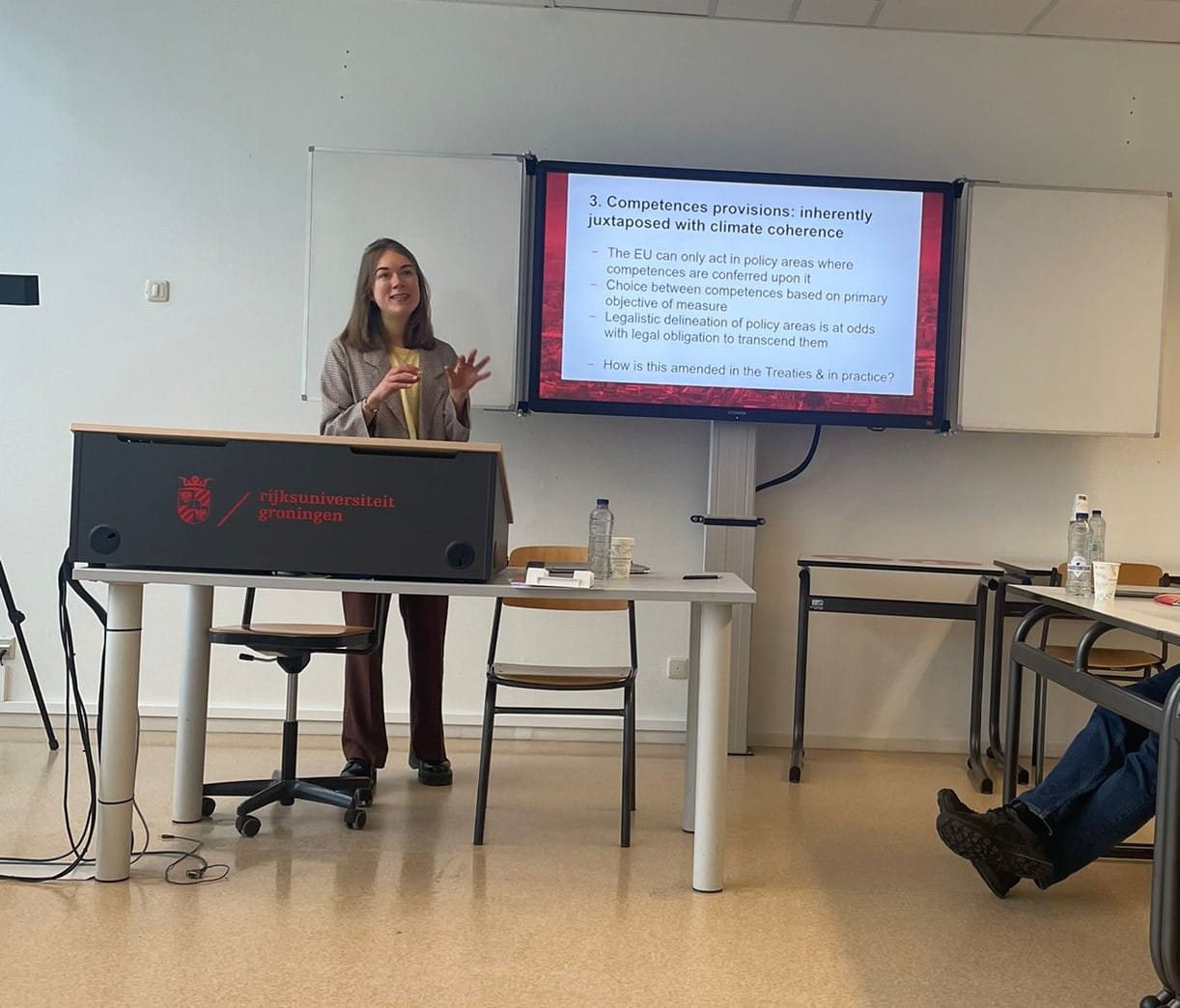Eva Pander Maat and Pia Rebelo
Monday April 18th marked the kick-off of the Global Goals Research Exchange between the Faculty of Law at the University of Groningen and City Law School at City, University of London. The Exchange presents an excellent opportunity to promote collaborative ties between legal researchers doing work in the topical areas of energy transitions and sustainable development. In the first iteration of the exchange, two City Law School researchers crossed the channel to present and discuss their work.

After the official opening by Professor Ramses Wessel, Eva Pander Maat presented part of her PhD research on climate coherence in EU law. She focused on the question to what extent the EU’s competences facilitate its pursuit of climate coherence, or the integration of climate objectives, in internal market, trade, energy and tax policy. With reference to the nature of competences, procedural particularities and provisions on minimum or maximum harmonization, Eva displayed that the Union composes of a variable range of powers. Whilst some actively promote its pursuit of climate coherence, others present pertinent obstacles. The ensuing discussion covered matters such as Treaty amendment, the empirical reality of minimum and maximum harmonization, and competence creeps. The liveliness of the discussion was testament to the relevance of scholarly debate on the future of the Union and its ability to combat climate change.

Subsequently, Dr Pia Rebelo presented her upcoming monograph entitled ‘Green Shipping Contracts: A Contract Governance Approach to Achieving Decarbonisation in the Shipping Sector’. Although her work is within the context of maritime law and commercial contracts, the focus of the presentation was on how contract governance theories can enable a set of contractual mechanisms to achieve net-zero targets. In particular, Pia spoke about private initiatives to modernise contract law and develop accepted green norms for cooperation between private actors to achieve greener performance. The sustainable development agenda and principles of international environmental law need to be more fully integrated into the private law as global problems require pluralistic forms of governance.
The first iteration of the Research Exchange left a feeling of academic inspiration, as well as gratitude to its organisers and all researchers at the University of Groningen for their incredibly warm welcome. The day was characterized by a distinctly friendly and supportive research environment and a rich programme, including joining in on the celebrations for the PhD defence by Marlies Hesselman on the human right on access to energy services. Sparked by the breadth and depth of research backgrounds over the course of the day, conversations on the role of the law in responding to the present environmental and energy crises continued well over dinner. It shall be a worthy challenge to extend the same hospitality to the researchers from Groningen on their visit to City Law School for the second part of the Global Goals Research Exchange in June.
The Research Exchange was supported by City’s Global Engagement Seed Fund and facilitated by Dr Jed Odermatt, Senior Lecturer, City Law School and Visiting Researcher, University of Groningen.

Leave a Reply